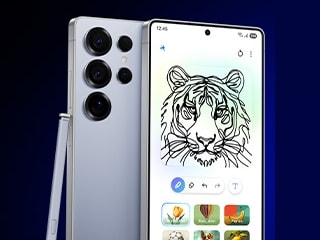- Home
- Entertainment
- Entertainment Features
- Is Inside Edge Problematic Like Joker? A Debate With Cast and Director of Season 2
Is Inside Edge Problematic Like Joker? A Debate With Cast and Director of Season 2
With musings on how to represent toxic characters.

Photo Credit: Amazon India
Inside Edge 2 cast at an event in Mumbai on Wednesday
The second season of India's first Amazon series — Inside Edge — a larger-than-life drama about what goes on behind the scenes of a fictionalised Indian Premier League, is out now on Prime Video. In the run-up to its release earlier this week, we sat down with the cast and crew of the International Emmy-nominated series to talk about the series, primarily its handling of fictitious power-hungry individuals, and whether it endorses and glorifies the actions of its many toxic characters. The conversation — unexpectedly but not surprisingly — involved Joker, the DC movie that has been part of a similar debate. Naturally, a consensus was out of the question, but it did bring forth a variety of viewpoints.
Inside Edge 2 Review: Why Is One of Amazon's Worst Indian Series Still a Thing?
But it also points to a bigger question. Does Inside Edge have any of the qualities of a Succession, the biting and brilliant satire of power-hungry rich people that's been heralded as a modern-day Game of Thrones, or is it more like The Wolf of Wall Street, the Leonardo DiCaprio-starrer biopic from Martin Scorsese, which was accused of glorifying its protagonist's reprehensible actions? Participants in the conversation below, which has been edited for clarity and brevity, include Sayani Gupta, Angad Bedi, Tanuj Virwani, Aamir Bashir, and director Aakash Bhatia.
For those unaware, on Inside Edge, Gupta plays Mumbai Mavericks chief analyst Rohini Raghavan; Bedi is the former Mavericks captain and now Haryana Hurricanes captain Arvind Vashishth; Virwani is the new Mavericks captain and Rohini's brother Vayu Raghavan; Bashir is new to Inside Edge 2, as the face of the existing season 1 character of Bhaisaab; and Bhatia, whose filmography has largely been in the advertising film business until now, is one of the new directors on season 2. Other characters referenced are Vikrant Dhawan (Vivek Oberoi) and Zarina Malik (Richa Chadha). Gadgets 360's questions are in bold below.
Inside Edge 2 Creator on Bhaisaab, the Long Delay, and the Amazon Series' Tone
To me, Inside Edge is largely filled with toxic men and women who will do anything to get ahead in life —
Gupta: No, nobody's toxic really.
Bhatia: There's an interesting balance of what and who is a toxic person, but I think the show in itself balances out with the other [end of the] spectrum as well, whether people who can strive for power without being toxic. I think that's a sort of equal balance that's been created; I wouldn't say it's towards one side or the other. I think everybody's striving for power [on Inside Edge].
Bashir: Besides for us as actors also, even if you might label as toxic or evil or negative or dark or black, we can't approach our characters [in that manner].
![]()
Angad Bedi as Arvind Vashishth in Inside Edge season 2
Photo Credit: Amazon India
Bedi: Like a great man once said, even if I'm the villain, but I'm still the hero in my story. And I think it's beautiful. I just feel that nobody's toxic like that. Everybody's drive is different.
Gupta: And you have to be empathetic towards each character that you play. You play it with utmost authenticity, and you have to understand where they come from, why they are doing [something], why they're behaving like they are. And everybody has a backstory, and everybody has their own set of ideas and reasons for behaving like they do.
But there's the other side of story; just because an actor sees the role that way, doesn't mean the audience's point of view is not valid.
Bhatia: Fair enough. I think these [Inside Edge] characters are comic book characters and they're grandstanding characters, but I think [you've] to hone them and bring them to authentic levels of aspiration, where you see yourself, but not really want to be that person. I think that's what the show has been able to do a little better with the kind of characters that we've sprayed around.
Getting back to the point I was trying to make earlier. It's okay to have these toxic characters, but it's also important for the show to call them out for who they are, right?
Bhatia: Absolutely. I think the sincere approach always is to do right by the characters in terms of how you create a narrative. But again, for someone like me, when I'm directing something, I cannot choose the side of any characters because if I start doing that, the tilt in the narrative will come towards whom I like a little bit more than others. But yes, the answer is that there should always be a sincere approach to understanding where you're taking these characters.
When I'm watching a film, a resolve isn't necessary to conclude a film or vice versa, conclusion is not necessary to resolve a film. So, similarly for characters as well, I don't think if I give them a redemptive moment in the narrative, they have been resolved or they've received redemption. I think that's for audiences to sort of engage with to understand, ‘Am I letting this character go scot free or not?' I think that's where it should be played with. We as filmmakers are putting content out there. I think I'd rather be judged than judge characters before I make them.
![]()
Richa Chadha as Zarina Malik, Vivek Oberoi as Vikrant Dhawan in Inside Edge season 1
Photo Credit: Amazon India
Most of these toxic characters largely succeed in what they're doing. And it's okay for them to succeed, which reflects how the real world operates. But do you think it's okay for Inside Edge to side with them and come across as endorsing their actions?
Bhatia: I think you're reflecting a narrative that is probably true to some part of the society. Whether you endorse it or not, comes through the way you reflect it, the way you narrate it. So, if I show something gory, do I endorse it? No, I'm showing something gory. The talent or the skill therefore lies between that line where you see it and you say, ‘This is brilliant, this should happen in the world, or people like this should get away.' But I don't think our show, for instance, does that. It just reflects upon here the kind of toxic or negative characters that are in our milieu, but we don't really necessarily know them. I don't think endorsing bad or good is at least the point of this show, in my opinion.
Virwani: [Early in season 2,] there's this dialogue where Zarina says, ‘Is this Vayu radioactive?' From her point of view, because he's not suiting her ambitions at that point, he becomes that guy. Rohini may look at me in a different way, I may look at you in a different way. It is a matter of perspective.
Bedi: What Zarina is doing in the show ethically is all wrong. But then in her head, if her story is that I come from a small town, and I'm the woman who has been mistreated by the film industry, she's just trying her level best to keep herself going. Maybe wear clothes a certain way, get that film going, work it out with [rival star and ex-boyfriend] Imtiaz, and then go to Bhaisaab's camp because she wants power. That's the only choice maybe the poor girl has, right?
I think it's completely valid for characters to be power hungry and do whatever they need to get ahead. Where we began this though, is it okay for Inside Edge to communicate the lesson that this is okay to do?
Gupta: But is it the lesson for you while watching it?
Looking at the arc of the first season, the character of Vayu essentially fails upwards. Even though he is arrogant and a man-child, he ends up being the captain of the Mavericks. He doesn't pay for those actions in a way that he should have.
Gupta: That's life, brother.
But as one of the protagonists, isn't it problematic to glorify Vayu's actions?
Bhatia: [Take a] look at the Joker [in Joker] and you'll be like, ‘Dude, just because I've seen his growth into becoming that person, does that justify what he does in the end?' It does not for some people, but for some people who watched it, [they] would completely be okay with it, because at what point do you draw the line? He killed one person because they were mocking him, he killed another person because they were mocking him, but the third person he killed for the joy of it all.
Joker Movie Review: Joaquin Phoenix Captivates in a Misguided Origin Story
![]()
Joaquin Phoenix in Joker
Photo Credit: Niko Tavernise/Warner Bros.
It's interesting that you bring up Joker, because I would say their approach is completely irresponsible.
Bhatia: Fantastic point of view to have and I understand where that's coming from. But I, on the other hand, have the contrary point of view. Because when I watched it, I was like, ‘Dude, this is literally a function of, where do I say it's okay for him to become that? Or for him to do what he does?' That particular film made me ask that question, constantly. ‘Where do I draw the line?'
Gupta: Integrally, whether you're trying to glorify it, or whether you're trying to truly represent that, there is a difference. To me, when I saw Joker, I didn't think there were trying to glorify what he's doing. They were just trying to represent and really tell the story of this guy, without having to celebrate what he's doing, and there is a big difference.
Bedi: In the beginning, I sympathised with Joaquin Phoenix's character. The first sequence, he was vulnerable. But then I lost sympathy for him completely [because] I realised this guy's mad. He needs help. So whatever he's doing, I can't sympathise with him. I see the same thing in like a megalomaniac in Vikrant Dhawan. Yeah, I can't sympathise with that character, because it's been written a certain way.
But when you see other characters, you do sympathise. You literally go down with Arvind Vashishth [in season 1], because he's the only good man standing. They all desert him. But then you sympathise with Vayu and Zarina. She had no choice [owing to] where she had positioned herself. From there, where does she go? Does she go back to her village, or does she stay in the town and try and make it work?
Bhatia: You can't have a blanket application for every character, I feel. These are characters that are available on a spectrum of one to 10 on toxic; one being Arvind, 10 being let's say a Dhawan. How do I humanise them, while still making sure that a viewer will watch them and judge them for what they are? I think that's our job.
Inside Edge 2 is now streaming on Amazon Prime Video worldwide.
Opening image: (L-R) [top row] Amit Sial, Aamir Bashir, Vivek Oberoi, Sapna Pabbi, and Sayani Gupta; [bottom row] Siddhant Chaturvedi, Tanuj Virwani, and Angad Bedi.
Catch the latest from the Consumer Electronics Show on Gadgets 360, at our CES 2026 hub.
Related Stories
- Samsung Galaxy Unpacked 2025
- ChatGPT
- Redmi Note 14 Pro+
- iPhone 16
- Apple Vision Pro
- Oneplus 12
- OnePlus Nord CE 3 Lite 5G
- iPhone 13
- Xiaomi 14 Pro
- Oppo Find N3
- Tecno Spark Go (2023)
- Realme V30
- Best Phones Under 25000
- Samsung Galaxy S24 Series
- Cryptocurrency
- iQoo 12
- Samsung Galaxy S24 Ultra
- Giottus
- Samsung Galaxy Z Flip 5
- Apple 'Scary Fast'
- Housefull 5
- GoPro Hero 12 Black Review
- Invincible Season 2
- JioGlass
- HD Ready TV
- Laptop Under 50000
- Smartwatch Under 10000
- Latest Mobile Phones
- Compare Phones
- Vivo Y500i
- OnePlus Turbo 6V
- OnePlus Turbo 6
- Itel Zeno 20 Max
- OPPO Reno 15 Pro Mini 5G
- Poco M8 Pro 5G
- Motorola Signature
- Vivo Y50e 5G
- Lenovo Yoga Slim 7x (2025)
- Lenovo Yoga Slim 7a
- Realme Pad 3
- OPPO Pad Air 5
- Xiaomi Watch 5
- Huawei Watch 10th Anniversary Edition
- Acerpure Nitro Z Series 100-inch QLED TV
- Samsung 43 Inch LED Ultra HD (4K) Smart TV (UA43UE81AFULXL)
- Asus ROG Ally
- Nintendo Switch Lite
- Haier 1.6 Ton 5 Star Inverter Split AC (HSU19G-MZAID5BN-INV)
- Haier 1.6 Ton 5 Star Inverter Split AC (HSU19G-MZAIM5BN-INV)

















